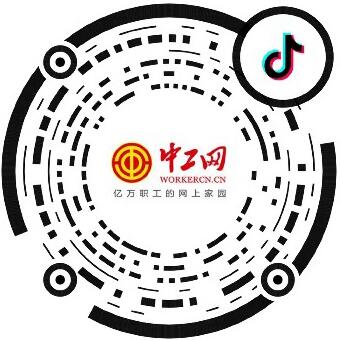Original title: How to "trade the old for the new" housing? Different modes in different regions →
The "old for new" housing means that the government designated institutions or real estate enterprises encourage and help existing residents to sell the old for new housing through acquisition, replacement, subsidies and other means. Up to now, more than 70 cities across the country have successively launched the housing "old for new" policy, hoping to activate the real estate market. At present, the "old for new" measures in some cities have produced certain results.
In May this year, Huadu District of Guangzhou took the lead in launching the "old for new" housing activity in Guangzhou. Up to now, more than 400 groups of interested buyers have consulted the "old for new" policy, and the first batch of customers who participated in the "old for new" policy have completed the signing registration. According to the plan of Huadu, through the "old for new", Huadu District will promote the linkage of the first and second hand houses and improve the activity of the property market.
Compared with Guangzhou, Nanjing's housing "old for new" activity has entered the stage of 2.0. At the end of April, Nanjing issued a notice on carrying out the pilot activity of "old for new" of stock housing. The first batch of pilot activities was limited to 2000 units. Due to the good response, the second batch of "old for new" housing consumption activities was launched recently, and 2780 units of 21 projects were launched.

Wang Huhao, Deputy General Manager of Nanjing Anju Construction Group Co., Ltd.: Since the launch of this pilot activity, our visits, as well as our recognition, have increased significantly, about three to four times as much as before.
Up to now, more than 70 cities in China, including Shanghai, Guangzhou, Shenzhen, Zhengzhou, Wuhan, Suzhou and Nanjing, have launched relevant policies to support the "old for new" housing. Among them, cities such as Nanjing, Wuhan and Guangzhou have also made follow-up adjustments to their policies, released the second batch of "old for new" activity list, and expanded the scope of "old for new" housing.
Main mode: intermediary helps sell state-owned enterprises to purchase housing subsidies
Up to now, more than 70 cities across the country have joined the ranks of "old for new" housing. According to local characteristics, different "old for new" models have been adopted.
After sorting out, reporters found that there are mainly two modes of "trade in the old for the new":
One is the model of intermediary selling old houses, that is, the real estate enterprises and intermediary agencies give priority to the promotion and sales of old houses. If the old houses are sold within a certain period of time, the new houses will be purchased according to the process. The second is the mode of state-owned enterprises purchasing old houses, that is, the state-owned assets platform directly purchases the old houses in the hands of owners as affordable housing, so that owners can directly purchase new houses.
In addition to these two models, many cities have also introduced subsidy policies, which are to give certain housing purchase subsidies to individuals or families who sell their own houses and purchase new commercial housing.

Yan Yuejin, Research Director of E-House Research Institute: From the feedback of many places, the market performance is generally positive. For example, some big cities recently launched some "old for new" projects, and the number of applicants far exceeded an estimate of the real estate enterprises. Some developers feedback that with the "old for new" work (promotion), it objectively has a positive effect on some new house customers of these developers.
How to "trade in" state-owned enterprises' participation in trade in
We can see that the "old for new" model of housing in various regions mainly includes two types: intermediary first selling and state-owned enterprises collecting the old for new. Among them, for many people who want to change houses, state-owned enterprise acquisition is a relatively new model. How is it carried out in the end?
In Qiaokou District, Wuhan, relevant state-owned enterprises have acquired old houses through a platform built by the government. At present, the local government has just expanded the project library of "old for new", raising 8 developers, including 10 new housing projects on sale. At the same time, relevant policies were further adjusted. The area of old houses was adjusted from less than 120 square meters to less than 140 square meters. The price of old houses was adjusted from not more than 70% of the total price of new houses to not more than the total price of new houses. In addition, the original stock house can only replace one new house, but now it is adjusted to allow up to three houses to replace one new house. If the house buyer wins a new house with a total price of 2.1 million yuan, his operation process should be as follows ↓
Zhang Jing, a staff member of Wuhan Qiaokou Urban Renewal and Anju Supply Chain Co., Ltd.: (If) his old house is valued at 900000 yuan, we will issue him a three-month purchase coupon. He can use the coupon to sign a three-party agreement with the developer and at the same time complete a new house purchase and sales agreement. We will pay 900000 yuan to the developer, and the remaining amount (120000 yuan) will be made up by the owner himself or go through relevant loan procedures.
According to the requirements of Qiaokou District, Wuhan, the current "house for house" policy is limited to the replacement of new houses in Qiaokou District with complete sets of old houses, with clear and independent real estate rights. After the willing citizens sign up for registration and pay 50000 yuan of house purchase intention fee, there will be a professional third-party appraisal agency to conduct on-site appraisal.

Zhang Jing, a staff member of Wuhan Qiaokou Urban Renewal and Anju Supply Chain Co., Ltd.: We have provided corresponding replacement housing on the platform, so customers can choose from the price, area and location segments according to their own needs and requirements.
The reporter learned that Qiaokou District "trades the old for the new", and the acquired second-hand houses will be mainly used for affordable rental housing in the future.

Wu Jing, Vice President of the Chinese Society of Real Estate Appraisers and Real Estate Agents: One of the advantages of this model is that it provides a possible combination between the two supply systems of security and market. For the supply of affordable housing, if we completely use the new construction mode, the plots with good location conditions are relatively scarce, and the construction starts from scratch, which requires a long period. This mode proposes an innovative solution to the problems existing in our current market.
There is still room for optimization of the "old for new" policy
The "old for new" housing is regarded as an important way to get through the replacement chain of second-hand housing and help real estate destocking. In the opinion of insiders, there is still room for further optimization and adjustment of this policy in the future.
Judging from the current market reflection, the implementation effect of the "old for new" policy for housing in different regions is not the same. Buyers in different regions should respond more positively to the mode of state-owned enterprises to buy back old houses. For example, the intermediary selling mode and direct subsidies, the driving effect on housing sales remains to be further observed.

Wu Jing, Vice President of the Chinese Society of Real Estate Appraisers and Real Estate Agents: I think if this "old for new" model of state-owned enterprise storage is to really play a role, the first is to occupy a certain share in the market. If the scale is too small, its role will not play out. The second is to be sustainable. This should not be a flash in the pan or just a little done in a month or two.
(CCTV reporter Yang Xiao, Wu Tianbai, Liu Runze and Peng Zhao)























